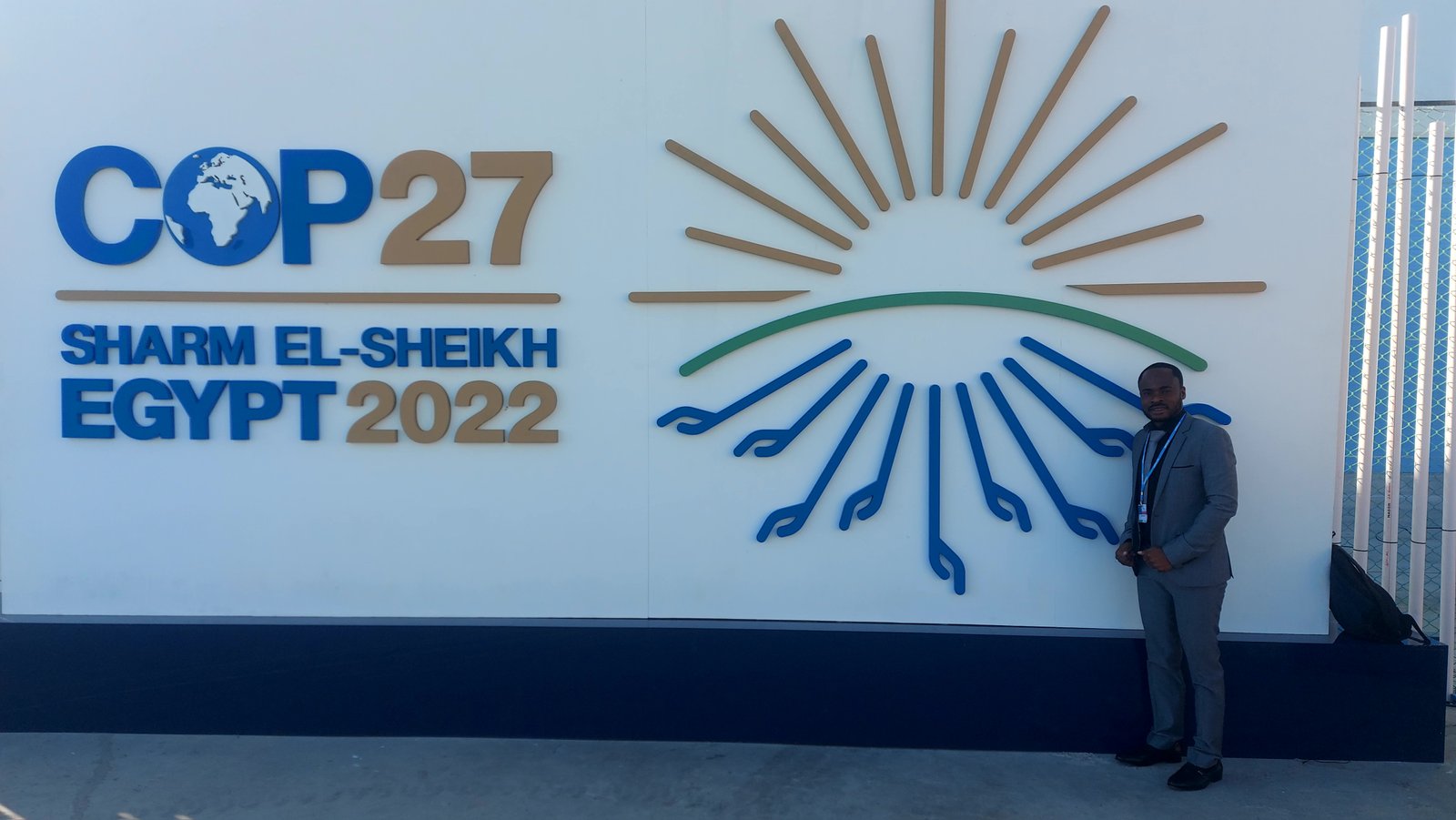Phone: +233 24 418 2515
Email: info@ccseghana.com

COP 27 IN RETROSPECT
COP 27 was the first COP in Africa after more than a decade and was dubbed the “African
COP”. It took place in Sharma El-Sheikh, Egypt from the 6 th to the 18 th of November 2022 under
the theme “together for Implementation” with focus on turning promises into action.
Going to COP 27, there was conversation around making sure the developing economies gets
justice for a crisis they did not cause but have to deal with its effects. People from the Global
South were therefore hopeful that COP 27 would be a big step forward on major issues like
securing climate finance for developing countries (US$100 billion), financial Mechanism for loss
and damage and increasing support for adaptation and mitigation. Unfortunately, COP 27
concluded with mixed feelings for me and I had two major big takeaways.
Firstly as someone from a vulnerable country, the fact that Parties agreed to create a loss and
damage fund to help compensate developing economies and areas highly suffering from the
devastating effects of climate change is history in the making. This massive success was made
possible by the untiring work of activists all over the world. Despite the win, my only hope is
that the loss and damage funds does not end up like the existing climate funds (Adaptation Fund,
Green Climate Fund, Global Environment Facility etc.) The cumbersome and beaurecratic nature
of these facilities makes it very difficult for developing countries to follow and access these
funds. Vulnerable Countries like Ghana has already being dealing with losses and damages for
decades and therefore if a funding mechanism is to be in operation, then it should be easily
accessible.
Secondly as someone who follows Action for Climate Empowerment (ACE) negotiations, I was
pleased that parties adopted the 4-year ACE action plan. The ACE action plan sets out short-
term, clear and time-bound activities in the four priority areas (Policy Coherence, Coordinated
Action, Tools and Support, Monitoring, Evaluation and Reporting) aimed at addressing gaps and
challenges related to implementing the six ACE elements (Climate Change Education, Training,
Public Participation, Public Awareness, Public Access to Information and International
Cooperation on these issues) creating opportunities to accelerate their implementation.
Unfortunately, the ACE negotiations at the Bonn Conference (Subsidiary Bodies of
Implementation, SBI 56) ended on a disappointing note with parties just managing to come up
with an informal note. Parties were therefore so much determined to complete the informal note
into an action plan at COP 27. Although it took hours of negotiations to agree on certain
deliverables in the action plan and with negotiations coming to a halt for hours at some point,
Parties managed to compromise their positions and adopted the first ACE action plan. My only
reservation with this action plan is the fact that it was adopted without a funding mechanism.
Climate Education, Training and Public Participation cannot be effectively implemented without
the requisite financial backing and unfortunately, that was missing in the action plan.
Despite the mixed feelings on the outcomes of COP 27, my experience has being the best so far
in terms of participation and logistics. The Egypt Government did a great job with logistical
arrangement with very affordable accommodation. My effective participation in COP 27 would
not have been possible without the support of Omega and the HBCU Green Fund. The HBCU
Green Fund technical and financial support through its Pre-COP27 virtual Conference was very
helpful and insightful. It empowered me to know more about trending climate issues prior to
COP 27 and also gave me the opportunity to connect and network with Climate youth leaders
and advocates from Sub-Saharan Africa and the diaspora embarking on amazing innovations in
creating solutions at the community level.
Although COP27 ended with several important steps to curb the climate crisis, its impacts
continues to worsen. There is therefore the need for increased action on climate change from
governments, financial institutions, corporations and Civil Society organisations to limit
emissions and accelerate climate resilience. The attention from now until COP 28 will therefore
need to be on turning agreements and promises into specific actions that reduce emissions,
protect people in vulnerable communities and green the planet.
Written by: Hussein Kassim (Executive Director, CCSE)
